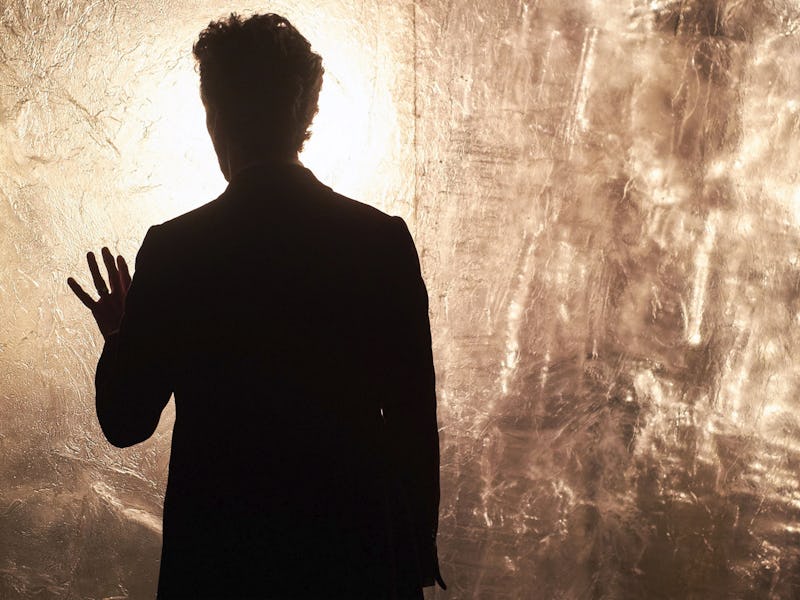'Doctor Who' Embraces the Dark Side With Help From Peter Capaldi's Gravitas
A lonely Doctor might be the best Doctor.

One of the major themes of Dr. Who has always been that the Doctor should never travel alone. He needs a link to humanity to keep him from spiraling into metaphysical depression. Without a companion, the Doctor does weird stuff, like spending a couple of billion years punching through a 400-times-harder-than-diamond wall weird. Yet, if “Heaven Sent” is any indication, Steven Moffat might want to keep the party of one rolling.
In this season’s second-to-last episode, we watch a lonely Doctor come completely uncorked. Clara’s gone, killed by a minor triviality, and the Doctor is left in a sort of Timelord prison. The only interaction we witness is with the silent, hulking warden Veil, and a hallucinated Clara.
We’d have been hard pressed to argue that the Doctor running around mumbling to himself for 45 minutes would make for good TV, yet here we are with potentially the finest episode of Capaldi’s tenure as the Gallifreyan time-traveler. It has all the hallmarks of classic Doctor Who: a mystery that slowly unravels itself, a brooding and mysterious villain, answers that unveil themselves in the form of a clever, yet wholly inexplicable paradox, and ultimately a grand escape. This time though, the Doctor is forced to flee further into his own darkness.
The entire premise of the Moffat-era series was a Doctor running from the act of committing double genocide against the Timelords and Daleks as the War Doctor. Christopher Eccleston was the Doctor trying desperately to forget, David Tennant was the Doctor trying to reconcile the evils of the past, while Matt Smith was the Doctor seeking forgiveness. Both Tennant and Smith had the occasional solo adventures (Eccleston’s first episode was technically a solo adventure when he ran into Rose) normally while reeling from the losses of a companion or two. It was during these periods that companions, no matter how temporary, pulled their respective Doctors back into the light.
Throughout Capaldi’s first season, the Doctor was more or less in mid-life crisis mode, pondering themes of morality and mortality. Is his new, yet familiar face a physical reflection of his own guilt? Was he a good Doctor or a good Dalek? Was blessing Ashildr with immortality a humane decision? With Clara’s help, he was able to wade through these philosophical conundrums, but he has neither sought nor found happiness.
Capaldi’s Doctor has always existed in the gray area between eccentric old curmudgeon you might want to invite in out of the cold for a bowl of soup, and grizzled harbinger of doom, capable of wiping out entire civilizations with the wave of a sonic screwdriver. With a human tether, the Doctor declared himself a “fool in a box” while rejecting an entire of army of Cybermen bequeathed to do his bidding. Just one week without Clara and he’s declared himself the hybrid conquerer of Gallifrey, prophesied to leave his home planet in ruins.
Part of the brilliance of Tennant and Smith was watching how close they could come to flirting with darkness without ever really crossing that line. As fans, we often rooted for the companions to reel the baby-faced Doctors back in, to help save them from themselves. Capaldi, however, has proven he is perfectly suited to be the Doctor who cartwheels right over that line and dives head first into the dark without the benefit of a human conscience. Doctor Who will never be Darth Vader, but who wouldn’t want to see Capaldi’s Doctor go full Malcolm Tucker on the universe?
It’s inevitable that Clara will be replaced by another companion tasked with shepherding the Doctor back to some semblance of humanity at some point; the Doctor, by definition, has to be a hero. However, here’s hoping that Moffat & Co. will spend some time playing with what time and space looks like with an unaccompanied, unhinged Doctor on the loose.